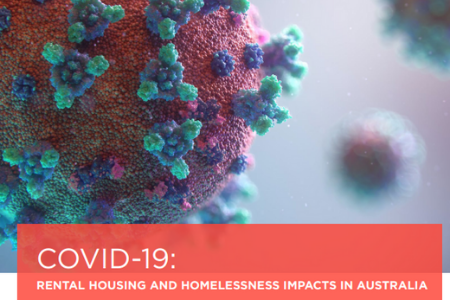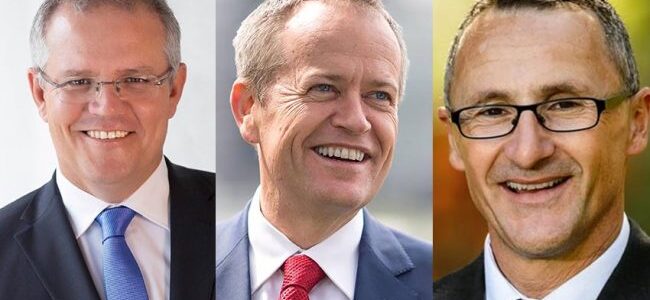The Federal Parties’ Housing and Homelessness Platforms
We are fast approaching the Federal election and so make no apologies for giving top billing to the Coalition, Green and Labor housing election platforms. While there has been a focus on the Labor (and the Greens) proposal to reform negative gearing, there has been far less prominence given in the news to some of the other initiatives to directly help people living in rental stress.
As we know work done by UNSW City Futures for CHIA NSW and Homelessness NSW shows that across Australia more than 700K new social rented homes are required by 2036 to meet both existing needs (the backlog) and plan for a growing number of households. Add a further 300K affordable rental homes for lower income workers priced out of homeownership – due to the cost of a deposit, and what are still very high prices compared to many people’s wages – and the case for urgent action is clear.
A shortage of affordable housing hurts individuals, communities and the Australian economy. Research commissioned by CHIA NSW for a consortium of organisations drawn from the public, private and not for profit sector demonstrated that Government investment where the market fails reaps rewards that benefit everybody.
In our table below, we have summarised in tabular form the elements of the Coalition, Labor and Greens housing and homelessness commitments in their published platforms, or gleaned from press releases. It was produced on 1 May and thus there may be further announcementsm, as not all the parties have outlined their positions.
In addition to the policies documented in the attached table, the Federal legislation that brings in changes to managed investment trusts (MITs) that could potentially incentivise investment in affordable housing was given assent just before the caretaker period and its provisions should come into effect from 1/7/19. Eligible foreign residents will generally be able to take advantage of a reduced withholding tax of 15 per cent on investment returns from affordable rental housing.
The Coalition also proposed to incentivise affordable housing investment through increasing the capital gains tax discount to 60% for homes that are rented as affordable for at least three years. This legislation has not (yet) received assent.
All the parties’ platforms have what we might consider a ‘gap,’ although in some cases it may simply be that they have not been explicit in stating what they will do. We also recognise that housing policy is shared between the three levels of government and that in some cases – say planning initiatives – a Federal government has few levers other than persuasion to influence whether inclusionary zoning is adopted and in other instances States could make contribution – say their surplus land, to provide the deeper subsidy that social housing needs to make its construction viable. The one ‘policy’ omission that could be federally driven is a comprehensive rent policy review. This more than just about increasing commonwealth rental assistance but setting and transitioning to a system that is affordable to tenants, at the same time as generating sufficient income to maintain and when necessary, upgrade homes.
2019 Party programs/commitments relevant to housing/homelessness
| Policy |
Lib/National Coalition |
ALP |
Greens |
| Institutional reform |
|
(1). Appoint housing and homelessness minister. (2). Re-establish National Housing Supply Council with wider terms of reference |
|
| Tax reform – private rental investors |
LNP will ‘stop Labor’s Housing Tax’ |
(1). CGT discount to be halved to 25% for all new rental property purchases (2). Restrict negative gearing to newly-built rental property acquisitions. (3). All existing rental property ownership to be grandfathered. (4). SMSF direct borrowing for housing acquisition outlawed |
(1). CGT discount to be phased out over 5 years. (2). Negative gearing to be phased out over 5 years for those with 2+ properties. Investors with one property will be exempt (3) End negative gearing for all new rental property acquisitions |
| Tax reform – Build to Rent |
|
Re-balance tax treatment of large-scale institutional investment in (market) rental housing to remove disincentive for overseas investors |
|
| Empty properties |
|
Establish COAG process to co-ordinate/facilitate uniform vacant property tax across major cities |
|
| Renters rights |
|
Introduce national tenancy standards for all residential tenancies to protect tenants’ rights e.g. on eviction, unfair rent increases, repairs, property quality. |
National standard residential tenancy agreement incorporating (a) tenancy termination on specified grounds only; (b) restrictions on rent rises; (c) ruling out blanket bans for pet ownership; (d) dwelling safety and energy standards. |
| Facilitating private finance for affordable housing |
(1). Maintain affordable housing bond aggregator (NHFIC) (2). Carry through review of community housing regulation |
|
|
| Affordable housing subsidy |
|
Initiate 10-year program to deliver 250,000 affordable rental homes supported by annual revenue subsidy to investors. Initial target: start 20,000 homes within 3 years. |
Target: 500,000 new PH and CH homes within 15 years – mainly funded via loans from Federal Housing Trust. This will be supplemented by an initial $1.5B capital grant program rising to $2.5B after three years. |
| Homelessness |
Develop national prevention strategy to counter domestic and family violence and sexual assault |
(1). Develop national plan to reduce homelessness through COAG. (2). Set up Safe Housing Fund |
$30M p.a. for tenancy advocacy services; $500M p.a. for crisis housing services |
| Regional economic development |
Engage with WA Govt and Qld Govt on City Deals for Perth and SEQ |
Overhaul and replace City Deals with City Partnerships program |
|
| Indigenous Housing |
|
Tackle overcrowding in remote communities
(1). In NT, commit an additional $550 million over 5 years from 2023-24,
(2). Provide $251 million in funding to Queensland, Western Australia and South Australia in 2019-20.
(3) Following these interim arrangements, work with the States and Territories to develop an, ongoing partnership to tackle overcrowding, as part of the Closing the Gap Refresh.
|
|
| Other |
|
(1). Strengthen NHHA on planning reform, inclusionary zoning and state/territory govt-owned land release. (2). Work with state/territory govts
to support, maintain and grow public housing |
Federal Govt to provide financial support to state/territory govts to encourage transition from stamp duty to land tax |
Sources: Party websites and media releases. Labor detail mainly from National Platform 2018




